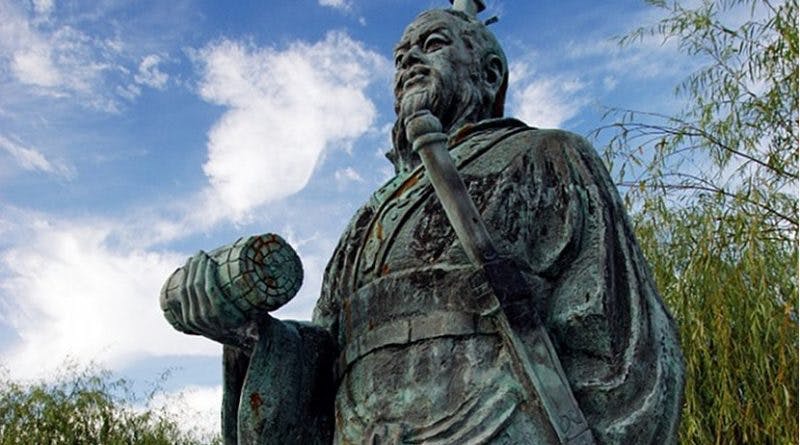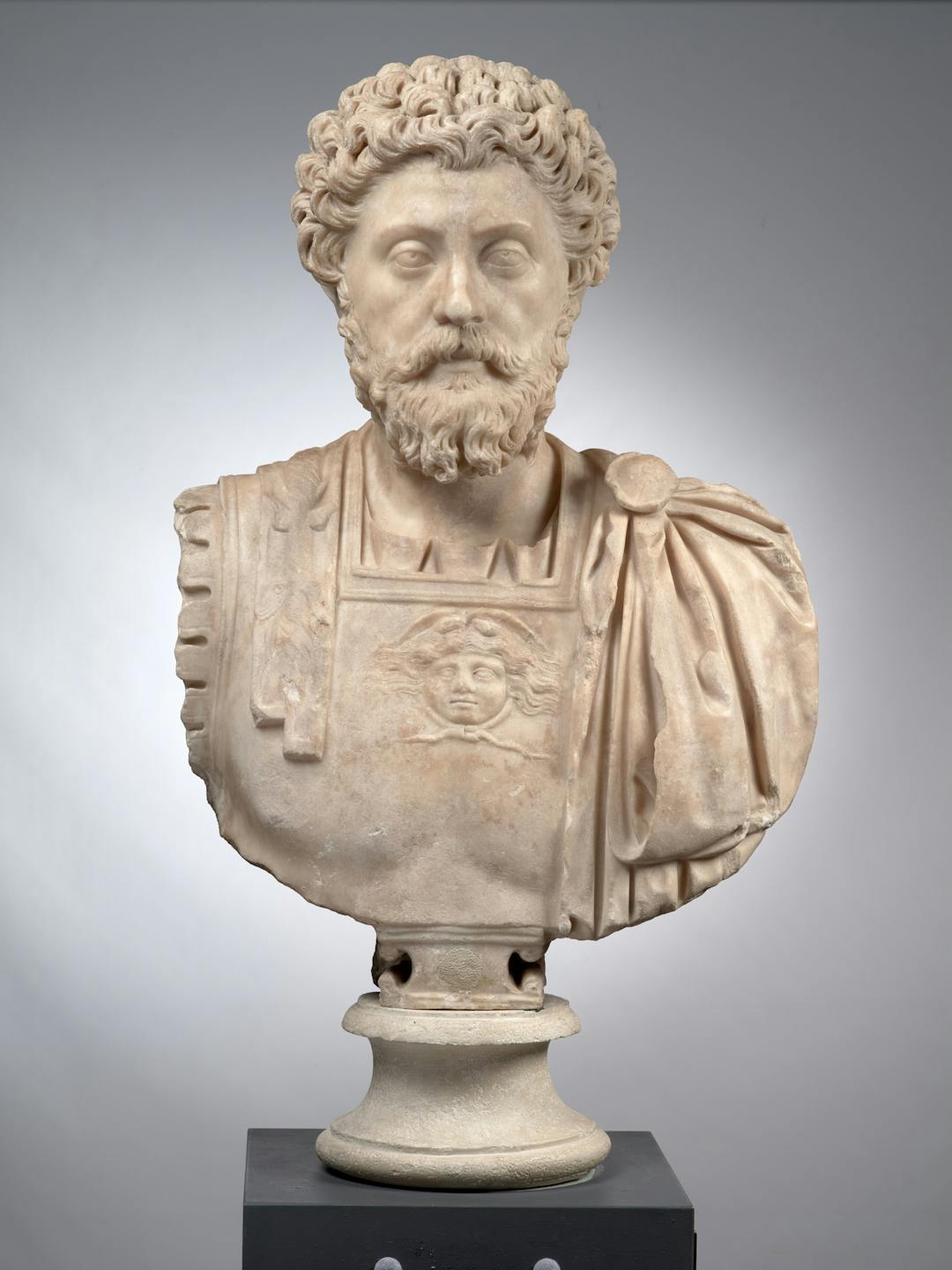Sun Tzu
The Psychology of Conflict
Introduction
Sun Tzu is a legendary military strategist who revolutionized war and combat as we know it. Not much precise information is known about Sun Tzu but he is most famously known for his book The Art of War, a guide on how to successfully engage in conflict and battle. Sun Tzu was a Chinese general, leader, philosopher and writer, whose military strategy goes beyond the battlefield and has implications in our daily life.
Sun Tzu approached war from a psychological perspective, an atypical way to approach battle in ancient China.2 While originally ordained as a concise guide for the military in premodern times, Sun Tzu’s The Art of War continues to be a bestseller and a household name for thousands worldwide. Its teachings have a particularly strong hold in business schools across the globe.2
Despite his military background, Sun Tzu claimed that the best way to win a battle was not through direct fighting. Departing from the typical violent strategies of premodern times, The Art of War makes claims that the best victories were possible without fighting.3 Tzu advocated that fighting should be the last option, not the first, and only done when absolutely necessary. However, when battle was necessary, it had to be well thought out. Because of his more logical and psychological approach to battle, Tzu’s methodology can be useful in exploring all kinds of conflict in our lives.
The supreme art of war is to subdue the enemy without fighting.
– Sun Tzu [4]
On their shoulders
For millennia, great thinkers and scholars have been working to understand the quirks of the human mind. Today, we’re privileged to put their insights to work, helping organizations to reduce bias and create better outcomes.
The Art of War’s applications today
To this day, The Art of War, now published over 2500 years ago, is one of the world’s most famous military texts. It is 13 chapters long and a concise and well-organized guide on how to use strategy to defeat one’s enemies. The book’s advice departs from violence and gore; instead, it focuses on how to battle strategically. Being strategic, according to Szu, includes knowing which battles to pick, being effective with resource allocation, creating harmonious relationships between the government and civilians, and ensuring to pick suitable and capable leaders.3
As most of us are unlikely to be spending our time plotting physical battles with enemy nations, it is more useful to examine the ways in which Sun Tzu’s teachings impact our day-to-day conflicts. Sun Tzu believed that finding the easiest way to win was the path to success, reminiscent of the popular phrase, “work smarter, not harder”. The ‘easiest’ way to win, according to Tzu, included being strategic instead of using brute force, using knowledge as a weapon, and seizing small victories to help set yourself up for future success.
Strategy over force
Tzu was able to recognize that often, militaries mobilized through sheer force, believing that the best nation was the strongest nation. However, Tzu claimed that intelligent fighting was based on tactful decisions on when and how to fight. He suggested that good military leaders were ones that picked easy battles that they knew they could win. In Tzu’s guide, psychological warfare matters more than physical force.
Tzu’s recommendation to pick easy battles can be applied to the way we handle our own inner conflicts. For example, imagine that you want to lose weight. Committing to an intense 12-week diet (that is a drastic change from your current eating habits) would represent the kind of all-force-ahead mentality that many leaders had. Such a strategy is not likely to succeed, and when we inevitably fail, we blame it on the fact that we didn’t have enough willpower instead of realizing that we didn’t take the best strategic course for our goals.
Instead of powering through with force, we should pick easy battles that we can succeed at. We can create good habits by taking the battle one piece at a time, such as deciding to cut out one unhealthy thing each week, like chips or soda.5
Part of Tzu’s advice for picking easy battles was to ensure that you have advantageous conditions. For war, this meant advantageous terrain or good weather conditions. But Tzu’s strategies can act as a mirror for creating our own strategies to overcome our biases when it comes to our behavior. Since we are not purely rational thinkers, we can use Tzu’s advice to set ourselves up in more favorable conditions so as not to fall victim to our human desires. When it comes to losing weight, this might mean not going out for dinner with friends, or not planning to start a diet while on holiday. To ensure victory, we should set ourselves up in the most favorable position, as this is more important than how strong we are.1
Embedded in the idea of only engaging in battles that you can win comes the idea of wisely choosing our battles. Szu writes in The Art of War that “there is no instance of a nation benefitting from prolonged warfare”.4 Similarly to how we need to pick the right time and way to fight, we also need to know which battles aren’t worth fighting. Some fights will only lead to failure, and Tzu suggested that these should be avoided at all costs.
Knowledge is Power
In The Art of War, Sun Tzu tries to guide us away from making rash emotional decisions by emphasizing the importance of knowledge. When preparing for a battle, Tzu suggested that leaders gained as much knowledge as possible. This knowledge encompassed factors like terrain and weather, as well as their own and their enemies’ military’s strengths and weaknesses. Leaders should consider everything that could affect the outcome of the battle and assess the best course of action in lieu of all the possibilities.
“If you know the enemy and know yourself, you need not fear the result of a hundred battles. If you know yourself but not the enemy, for every victory gained you will also suffer a defeat. If you know neither the enemy nor yourself, you will succumb in every battle.”
– Sun Tzu [4]
This advice translates into how businesses should operate. It is vital that businesses maximize the power of business intelligence. Business intelligence is a process that analyzes information and data to transform it into actionable insights.6 Businesses are always competing against one another, and if a business wants to be successful, they should carefully analyze their competitors. Only through an in-depth understanding of the market can a business be successful in their battle.7
Greater knowledge also means an awareness of the opportunities that are available to us. Tzu once said, “opportunities multiply as they are seized”.4 Acquiring knowledge is a form of seizing opportunities, as we open ourselves up to more potential possibilities. Tzu believed that knowledge allowed military strategy to be science, a science that could be understood and therefore leveraged for success.
Momentum Matters
Tzu’s claim that opportunities multiply as they are seized also relates to the importance of momentum. For warfare, he believed that each little battle won would give a military a greater chance of winning the overall war.
When it comes to our personal lives, the awareness that success breeds success can help us decide to take the first step towards our goals. A small action can lead to great future success, meaning that we should always take those first few opportunities in our careers and personal lives. If we miss those initial opportunities, we may not be presented with further opportunities.
Returning to the example of losing weight, deciding to cut out one bad food item is a small action. Once we succeed at that action, we will feel more confident and empowered to take another action towards our goal. Tzu’s advice informs us that we cannot let things pass us by – we need to seize every occasion because opportunities snowball into more opportunities. Empowerment is a huge factor for motivation, one that is required when it comes to breaking bad habits.
In our careers, Tzu’s advice translates into saying yes to as many opportunities as possible. This can mean sending dozens of resumes out in order to increase our chances of getting an interview or attending as many networking events as possible to expand our pool of possible colleagues.1
Historical Biography
Victorious warriors win first and then go to war, while defeated warriors go to war first and then seek to win. – Sun Tzu4
Few details are known about Sun Tzu’s life outside of his revolutionary and influential book The Art of War. His name Sun Tzu literally translates to “Master Sun”.8 He is believed to have been born in China’s Chunqiu period, translated into the “Spring and Autumn period” between 771 and 476 BC.9 During this period, many nations were fighting and competing for supremacy.
It is believed that Sun Tzu was from an aristocratic military family due to his literary prowess.2 Before taking a position as an advisor to King Helu of Wu, Sun Tzu is likely to have worked as a mercenary, a soldier hired to work in a foreign nation.8 Tzu is thought to have written The Art of War during this time, between 470 and 220 BC. During this time, China was experiencing many socio-political upheavals, with small kingdoms battling one another in an attempt to expand their domain.10
This tense environment meant that leaders were searching for ways to improve their fighting strategies. After hearing about Sun Tzu’s The Art of War, the King of Wu got wind of the highly regarded general, inviting him to demonstrate his military skills. It is believed that Helu gave Tzu a test to see if the theory that Tzu had written about actually translated to being able to manage soldiers.11
King Helu brought 180 women out of his palace, divided them into two groups, and placed two of his favorite concubines at the head of each. Sun Tzu was left to explain to them how to march, and the women affirmed that they understood his instructions. However, when he began the drill, the women would just laugh. Tzu said, “if words of command are not clear and distinct, if orders are not thoroughly understood, the general is to blame. But if his orders are clear, and the soldiers nevertheless disobey, then it is the fault of their offices.”11 He ordered that the King’s two favorite concubines be beheaded. He chose two new women to take their place and started the drill again. This time, the women followed his orders. Sun Tzu informed King Helu that his army was drilled and disciplined.11
King Helu was now convinced that Sun Tzu knew how to handle an army and appointed him as general. After Sun Tzu was appointed, the kingdom of Wu had many great successes and became one of the most powerful nations of the period.8
After its success as a military strategy guide, The Art of War evolved into many other teachings. The book was translated into French in 1782, and into English in 1905, widening the scope of people who were able to access its wisdom. Today, its teachings are the basis for many martial art philosophies, business strategies, psychological warfare involved in sport, and self-help guides.12
Sun Tzu’s wisdom
As Sun Tzu was alive a long, long time ago, most of what we know about him comes from his guide The Art of War. It was based on five main principles about winning:
“1. He will win who knows when to fight and when not to fight.
- He will win who knows how to handle both superior and inferior forces.
- He will win whose army is animated by the same spirit throughout all its ranks.
- He will win who, prepared himself, waits to take the enemy unprepared.
- He will win who has military capacity and is not interfered with by the sovereign.” 4
Despite being a guide on military strategy, Sun Tzu actually approached battle with far less violence than many of his counterparts. He understood the importance of harmony within a nation:
“Treat your men as you would your own beloved sons. And they will follow you into the deepest valley.” 4
But above all, Sun Tzu believed that war was the last resort and that a smart leader would explore all other avenues first:
“The wise warrior avoids the battle.” 4
“One may know how to conquer without being able to do it.” 4
“There are roads which must not be followed, armies which must not be attacked, towns which must not be besieged, positions which must not be contested, commands of the sovereign which must not be obeyed.” 4
All quotes from Sun Tzu’s book, The Art of War
Where can we learn more?
As has been mentioned, Sun Tzu’s The Art of War has been adapted to many different fields and purposes. You are likely to be able to find a variation of his teachings for any situation that fits your purposes.
For example, Chin-Ning Chu, an American business consultant, wrote The Art of War for Women to help young businesswomen strive for success. You can purchase the book here, or listen to it as an audio version here.
If you’re more interested in how Sun Tzu’s teachings can be applied to winning in sports, The Way of the Champions by Jerry Lynch might be the book for you. Jerry Lynch was a pro baseball player and has since worked with championship athletes and sports psychologists to become an international speaker, so he might have a few good pointers on how to be successful in the sports world.13 You can listen to a summary of the book here. Lynch has a whole host of resources on his personal website as well.
If you want a deeper dive on what Sun Tzu actually wrote in The Art of War, the podcast Decoding the Art of War provides contextual background on the teachings of the guide and examines how the theory can be put into practice.
References
- Kim, P. (2019, December 7). 9 practical life lessons from Sun Tzu’s art of war. TutorMing. https://blog.tutorming.com/expats/life-lessons-from-the-art-of-war
- Hays, J. (2016, November). Sun Tzu and the art of war. Facts and Details. Retrieved September 8, 2020, from https://factsanddetails.com/china/cat2/4sub7/entry-5359.html
- Shortform. (n.d.). Book Summary: The Art of War, by Sun Tzu. Retrieved September 8, 2020, from https://www.shortform.com/summary/the-art-of-war-summary-sun-tzu
- Goodreads. (n.d.). Sun Tzu Quotes. Retrieved September 8, 2020, from https://www.goodreads.com/author/quotes/1771.Sun_Tzu
- Clear, J. (2018, June 11). Sun tzu: How to use military strategy to build better habits. James Clear. https://jamesclear.com/sun-tzu-habits
- M K., & Fruhlinger, J. (2019, October 16). What is business intelligence? Turning data into business insights. CIO. https://www.cio.com/article/2439504/business-intelligence-definition-and-solutions.html
- McNeilly, M. (2013, November 11). Fighting your business battles: 6 lasting lessons from sun tzu’s art of war. Fast Company. https://www.fastcompany.com/3021122/fighting-your-business-battles-6-lasting-lessons-from-sun-tzus-art-of-war
- The Science of Strategy. (n.d.). Man of mystery: Sun tzu’s life or what we think we know. Retrieved September 8, 2020, from https://scienceofstrategy.org/main/content/man-mystery-sun-tzus-life-or-what-we-think-we-know
- Encyclopedia Britannica. (2017, December 4). Spring and Autumn period. https://www.britannica.com/event/Spring-and-Autumn-Period
- Simply Knowledge. (n.d.). Sun Tzu. Retrieved September 8, 2020, from https://simplyknowledge.com/popular/biography/sun-tzu
- Suntzudo. (n.d.). Sun tzu and the concubines. Sun Tzu Do The Way of Sun Tzu. Retrieved September 8, 2020, from https://suntzudo.weebly.com/tzu-and-the-concubines.html
- Ducksters. (n.d.). Ancient China: Sun Tzu and The Art of War. Retrieved September 8, 2020, from https://www.ducksters.com/history/china/sun_tzu_art_of_war.php
- Patel, P. (n.d.). The way of the champion. Actionable Books. https://www.actionablebooks.com/en-ca/summaries/the-way-of-the-champion/
About the Author
The Decision Lab
The Decision Lab is a Canadian think-tank dedicated to democratizing behavioral science through research and analysis. We apply behavioral science to create social good in the public and private sectors.





